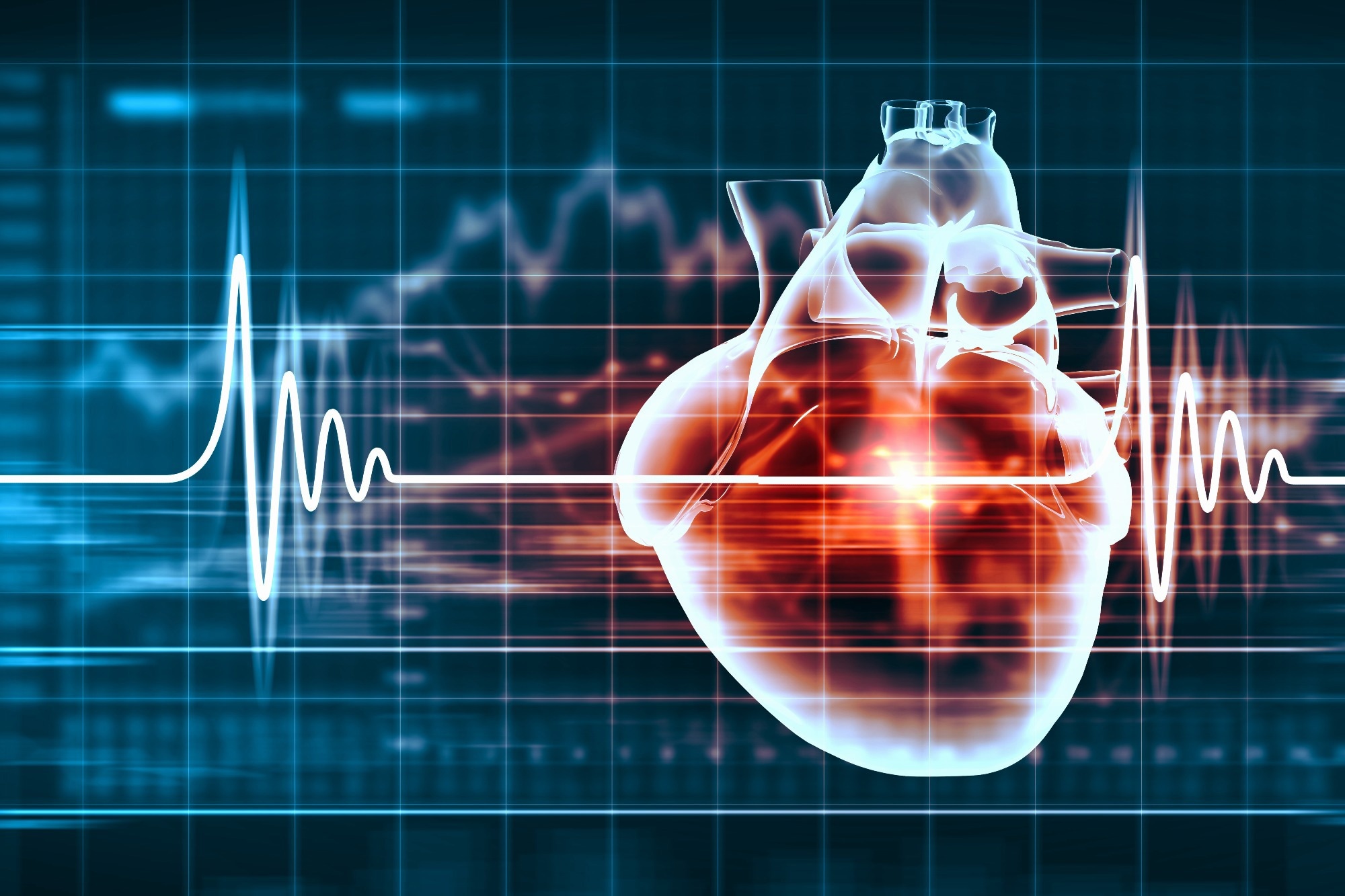CVD and cancer are leading causes of morbidity and death worldwide, and both illnesses are increasingly understood to be fundamentally linked. Understanding the risk factors and processes that link CVD and cancers allows for the prediction, prevention, and treatment of both, which is critical for advancing the area of cardio-oncology and improving the standard of care.
In the present review, researchers reviewed existing data on the association between CVD and cancer.
 Cardiovascular disease and cancer: shared risk factors and mechanisms. Image Credit: ESB Professional / Shutterstock
Cardiovascular disease and cancer: shared risk factors and mechanisms. Image Credit: ESB Professional / Shutterstock
Shared modifiable factors contributing to cardiovascular disease and cancer risk
Hypertension contributes to CVD and several cancer types, including colorectal, breast, and renal cell cancers. Cancer patients and survivors have higher hypertension rates than healthy individuals. Hyperlipidemia is also associated with atherosclerotic CVD and low-density cholesterol (LDL)--lowering treatment can decrease CVD-related and any-cause deaths. Studies indicate that hyperlipidemia increases breast and colorectal cancer risk.
Obesity, an independent CVD risk factor, exacerbates other risk factors such as diabetes, hypertension, and hyperlipidemia. Diabetes, an established contributory factor for cardiovascular disease, increases colorectal, breast, endometrial, and gallbladder cancer risk. Smoking elevates CVD risk and cancer incidence, increasing cardiovascular morbidities and deaths and malignancies in the upper respiratory organs.
The link between alcohol intake and CVD risk is ambiguous; however, excessive drinking can increase CVD risk. The Mediterranean diet and increased exercise are dose-dependent and significantly related to a lower risk of cardiovascular disease, tumors, and related deaths. Socioeconomic determinants of health (SDOH) measures are strongly related to worsened cardiovascular health and poorer cancer outcomes.
The dysregulation of systems regulating cellular aging, proliferation, metabolism, and damage connect cardiovascular disease and cancer. Oxidative stress in CVD raises noncommunicable disease risk, whereas clonal hematopoiesis causes chronic inflammation, which leads to atherosclerosis and inflammation. Microbial dysbiosis in cancer is associated with increased cell turnover, genotoxic metabolite production, inadequate immune surveillance, and chronic inflammation. Metabolic instability in cancer cells can result in circulating oncometabolites and cardiovascular remodeling. Environmental factors such as diet and medication use can influence dysbiosis. Circulating soluble chemicals are potential mediators of accelerated tumor growth and increased cancer risk in CVD patients.
Epidemiological evidence concerning shared factors increasing CVD and cancer risk
Each 5.0 mmHg decrease in systolic blood pressure (SBP) lowers major adverse cardiovascular events [MACE, hazard ratio (HR) 0.9 without prior CVD; HR 0.9 with prior CVD] risk. A 10-mm Hg drop in SBP lowers CVD [relative risk (RR) 0.8] and any-cause mortality (RR 0.9) risks. Hypertension raises the chance of developing kidney, colorectal, and breast cancers.
Elevated serum triglyceride raises colorectal cancer risk (HR 1.2), but increased high-density cholesterol (HDL) lowers colorectal (adjusted HR 0.8) and breast cancer incidences (RR 0.9). A 5.0 kg/m2 rise in body mass index (BMI) increases CVD risk factor risk, including hypertension, heart failure, ischemic stroke, atrial fibrillation, rectal cancer, and biliary tract cancers with RR values of 1.5, 1.4, 1.4, 1.2, 1.1, and 1.6, respectively. Elevated BMI is also associated with coronary artery diseases (HR, 1.2) and CVD-related deaths (HR, 1.5).
Diabetes mellitus is associated with increased cardiovascular and any-cause deaths (HR 1.2). Smoking raises significant CVD risk (RR 1.6) and related deaths (HR 2.8). Quitting cigarette smoking within five years lowers the incidence of new-onset CVD (HR 0.6). Low-level drinking (1.3–5.0 g of alcohol daily) reduces coronary heart disease-related death risk compared to non-drinkers (RR 0.8); however, drinking >50 g of alcohol daily increases the risk of oropharyngeal, oesophageal, colorectal, laryngeal, and breast cancers.
The Mediterranean diet, which includes olive oil and mixed nuts, lowers the incidence of CVD (HR 0.7). Mediterranean diets reduce the risk of nonfatal MI (RR 0.5), CVD mortality [odds ratio (OR) 0.6], all-cause mortality (OR 0.7), colorectal and breast cancers, and cancer death (RR 0.9). Low cardiorespiratory fitness raises all-cause mortality and CVD events (HR 1.7). High leisure-time physical activity lowers the incidence of 13 malignancies, with the most robust relationships seen in esophageal, lung, and kidney cancers (HR 0.6). The presence of at least one SDOH increases 90-day mortality after heart failure hospitalization (HR 2.8). Three or more SDOHs raise the likelihood of fatal events (CVD HR 1.5) and cancer-related mortality (HR 1.3 for those over 65 years).
Based on the findings, CVD and cancer have a bidirectional link, with shared processes and risk factors producing both conditions. CVD raises the risk of certain types of cancer and cancer-related mortality, whereas cancer raises the risk of certain types of CVD and CVD-related death. Common risk factors include hypertension, high cholesterol, diabetes, obesity, smoking, nutrition, physical activity, and SDOH. Addressing shared risk factors for CVD and cancer has far-reaching public health consequences, as technological discoveries have made cancer a chronic illness, and an increasing population of aging adult survivors may acquire comorbid CVD.